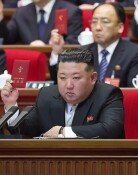Ruling party still has no direction for real estate policies
Ruling party still has no direction for real estate policies
Posted May. 27, 2021 07:27,
Updated May. 27, 2021 07:27
The Democratic Party of Korea will make conclusions on key current issues at a general meeting of lawmakers on Thursday after its attempt to complement real estate policies to reflect the public sentiment, which was confirmed to be upset based on the results of the April 7 by-elections. Even though one and a half months have passed since the by-elections, the ruling party’s special committee on real estate only reached an agreement on the property tax issue and other issues, including gross real estate tax and transfer income tax, will be discussed at the general meeting.
For now, there is an agreement within the party that the criteria to reduce property tax for a single-home owner should be raised from “below 600 million won” to “below 900 million won” and that the tax rate for a housing worth between 600 million won to 900 million won should be lowered. Raising the threshold for transfer tax exemption for a single-home owner from 900 million won to 12 million won is under review, but an agreement has not been reached. For gross real estate tax measures, which is the most contentious point and takes into account raising the taxation threshold from 900 million won to 12 million won and limiting those subject to taxation to the top one to two percent, were discussed but faced heavy opposition from the pro-Moon hardliners.
As endless discussions continue, it is increasingly more expected that the ruling party’s attempts to revise real estate policies, which started from the awareness that massive property holding tax was the cause of the party’s by-election loss, will end with no meaningful results. “Ninety-six percent of people have nothing to do with the gross real estate tax,” said the hardliners to party leader Song Young-gil and Kim Jin-pyo, the head of the special committee on real estates, who argued for the need to relax not only property tax, but also gross real estate tax and transfer tax. They are making an opposing argument to maintain the status quo by saying that they hope the special committee is not intended to reduce tax for the rich.
The government is also against the significant relaxation of the gross real estate tax in order to maintain its policy direction. The government and the ruling party are continuing back-and-forth arguments without taking a single step away from the political frame surrounding real estate that divides people based on housing prices and taxes. It is said that there is a growing voice within the ruling party that decisions on the highly contentious issues, such as gross real estate tax and transfer tax, should be delayed until the end of the year with consideration of public opinions. This means that the promise made by the special committee at the time of its launch to complete all decisions before June 1 in consideration of the timing to finalize property tax is unlikely to be kept.
As the ruling party said they will take the lead to resolve the real estate issue, for which President Moon Jae-in admitted failures by saying that the by-election results were a grave judgment, solutions fundamentally different than the previous ones should be put forward. The basis of the policy mistakes, which originated from a naïve idea that all is well when speculations are under control, should be fundamentally corrected. If they propose ambiguous solutions with no practical benefits after raising expectations like this, there will be even harsher judgment from people.







